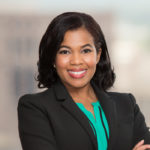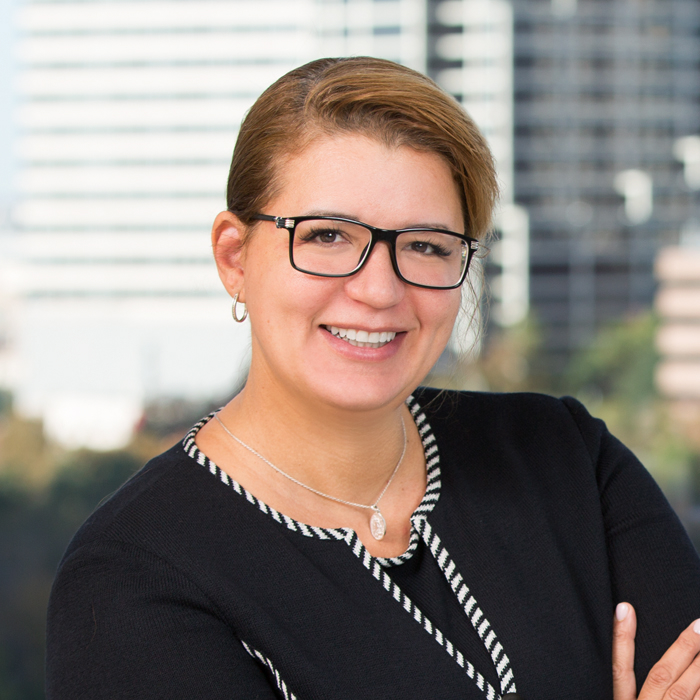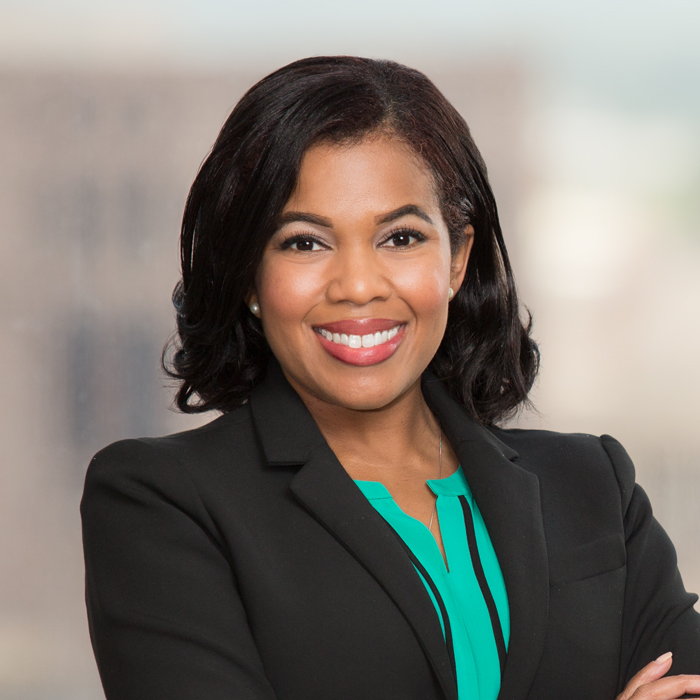After a yearlong journey participating in the Mansfield Rule 5.0 Certification process, Jackson Walker achieved not only certification, but 5.0 Certification Plus status. Jackson Walker partner Suzan Kedron, who leads our Diversity & Inclusion Committee, and Chad Cole, Social Impact and Sustainability Manager, joined the Fast Takes podcast to discuss the Mansfield 5.0 program and the firm’s commitment to diversity, equity, and inclusion.
Featured This Episode
Our Host:
|
|
Episode Guests: |
|
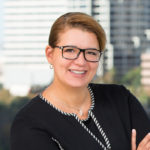 Suzan Kedron Suzan KedronPartner, Dallas Chair, Diversity & Inclusion Committee Follow on LinkedIn » |
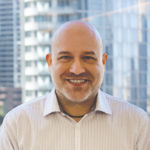
Chad Cole |
Episode Transcription
Courtney White: Hi, everyone. I am Courtney White, and this is Jackson Walker Fast Takes. In 2021, Jackson Walker started the Mansfield 5.0 certification process. The yearlong certification process requires law firms to expand their talent pool, evaluate their hiring processes and promotion to partnership, all while committing to continued cultivation of diversity, equity, and inclusion and advancement practices in leadership roles. In 2022, Jackson Walker was announced as a Mansfield 5.0 leader. I asked two of my colleagues to join this podcast episode to discuss the Mansfield certification process. Suzan Kedron, a partner in the Dallas office, who is the Jackson Walker Diversity & Inclusion chair, along with Chad Cole, who is the Social Impact and Sustainability Manager.
Hi, Suzan and Chad. I’m excited about our discussion today.
Chad Cole: Thanks, Courtney.
Suzan Kedron: Courtney, thank you for having us today. We’re really excited about being here.
Courtney White: Chad, for our listeners who are not familiar. Could you please tell us what is the Mansfield certification?
Chad Cole: The Mansfield Rule really is trying to ensure that diversity and inclusion is being widely introduced and is championed by the legal industry. The certification process of Mansfield started as an idea back in 2016. The first iteration, 1.0, was in 2017. After that, and each year, it’s gotten a little more difficult. But the idea and premise behind the Mansfield Rule is really to ensure that underrepresented talent has access and opportunity to things that happen at the firm. Each year, it becomes a little more difficult to achieve certification status. The most recent cohort of 6.0 has more than 200 firms participating, and we are so glad that we were able to achieve certification plus status for 5.0.
Suzan Kedron: You know, as Chad mentioned, the program has been around for a long time. So, when I took over to work on our diversity and inclusion initiatives, we were looking for what I’m going to call a signature program – something to kind of start off big and strong with. Since Manfield has been a program that’s been around for so long, we thought that was a good place to start.
When I brought it up to Mancom, they were very excited about it. But of course, since we hadn’t participated before, everybody really questioned, you know, what is this program, how does it work, and what’s going to be the impact on us here at Jackson Walker and our firm culture, because that’s something that’s very important to us. When I explained it, I got a lot of head nods and people were really excited.
I took the program first to our management committee, which we call Mancom, and explained to them that this was really a signature certification that we really wanted to get, because we think that our diversity and inclusion initiatives at Jackson Walker are, you know, we think we’re doing good and we’re excited about them, but if we don’t measure it, then how do we know if we really are doing good or not? And so, I explained that this was a real way to measure do we have the right people that are up for consideration and then are those people getting promoted to partnership and things like that? So, that’s kind of the premise of the program. I’ll have Chad go into a little bit more detail about it.
When I took it to Mancom, their first suggestion to me was why don’t we audit it for a year, because it does come with a hefty price tag. They said, “Why don’t you audit it a year, Suzan, and see how we do? I mean, if what you’re saying is true, if we are that great, then will we actually achieve Mansfield certification and/or Mansfield certification plus?” So, Chad, and I set out the first year and we basically did a self-audit of the program, which actually at first, I wasn’t excited about, because I was like, “Oh my gosh, why can’t we just do it?” I’m that little kid, like when something comes along, I just want to do it right away, but they said, “No, Suzan. Go back and look at it.” I was really happy we did because what it helped us do from an administrative standpoint is get our data points together and be able to gather the data that we need to input into the program.
Courtney White: Thank you so much. That was definitely a process. So, how was JW able to get certified? I know that it wasn’t immediate, because you both alluded to it. But I’d love to hear a little bit more about the actual certification process.
Suzan Kedron: We did the audit, which was great. These programs don’t work unless we have the support from all of our colleagues. Quite frankly, although we’re measuring the attorney growth and attorney progress, we need staff members to really help us take the lead on that. So, Mancom worked closely with our senior staff managers. While we were auditing the program, it’s the senior staff managers that really gave input. I’m lucky enough to have Chad work very closely with me.
I’m going to turn it over to Chad and talk about some of the input that he received from his colleagues and senior staff managers to help us gather the data that was necessary in order to achieve the certification.
Chad Cole: So, in order to achieve certification, there were 14 different categories that Mansfield was looking, and that ranges everything from lateral partner recruitment, lateral associate recruitment, management compensation committees, etc. There were a lot of different departments that were involved in helping provide this. Since we had actually never been through it before, it took a lot of coordination. We were actually doing pretty well in tracking most of the information, but at a department level. So, what we had to do is figure a way out to kind of standardize what we were looking for that way everything was much more efficient when we came to look at it. This is not something that can be done by one person. So, as Suzan mentioned, the senior staff managers were heavily involved with their respective areas, and we couldn’t have done it without them. The way they do it becomes a little technical, so I won’t get into it too much. But we ended up only needing to look at 11 categories, because one of the things they looked at we don’t have here – we don’t have a particular committee. We also did not change our managing partner, nor did we hire in C-level staff roles. So, the remaining 11 categories, we had to ensure that at least 30% of the candidates for any one of those other categories were underrepresented talent.
I feel like I should take a step back for a moment and define what underrepresented talent is. That is women, people of color, LGBTQ, and those with disabilities. Whenever Mansfield first started, it was only looking at women and people of color. Over the years and with each iteration of it, they typically add things to make it a little more difficult. So, that’s how LGBTQ+ was added in as well as those with disabilities.
The main difference between certification and certification plus is that instead of the 30% consideration rule, that means that we have actually met or exceeded that threshold on the actual makeup and composition of the categories that they look at for plus status, and that is looking at 11 categories. But much like certification, we only look at those where we only have activity throughout the year. Again, that looks at the actual partner promotions, the actual number of equity partners, etc. We were cautiously optimistic all the way through 5.0, and we were able to achieve certification plus status. They are making it a little more difficult to achieve plus status with 6.0, but again, we are cautiously optimistic with that. And again, it’s really as a team effort, with all of the departments working together.
Suzan Kedron: These programs and these certifications, they don’t work unless there is somebody leading the charge. Really, Chad has done that for us. I’ve talked to a lot of colleagues and other law firms, and I am truly lucky and blessed to have someone like Chad helped me. I was speaking on a panel about Mansfield, and one of my panelists was saying that they went out and actually got this information from all their colleagues. I can’t imagine having to do that and run a practice and, you know, participate in a lot of these other activities that we have to do just for the firm, and then also pull this information together. You know, it sounds really easy, but it’s much harder to do. We really want to thank Chad for all of his hard work and his work with the senior staff managers in pulling all of that information together.
Courtney White: It definitely seems like the process was collaborative, and I love that. That’s one of the values of our law firm. And I’d love to know, what are the next steps on the DEI journey for Jackson Walker?
Suzan Kedron: I’ll jump in on this one because I’m excited about it.
Well, obviously, as it relates to Mansfield, it’s continued participation. We do not think that, you know, one-and-done is it for us. We enjoyed participating last time, we’re gonna do it again next year. Again, we’re always going to shoot to be certified plus, but as Chad mentioned, we have to be certified first before we can even seek the plus designation. That’s definitely going to be one of the programs, that is the certifications to, that are the basis of our D&I programming as we go forward. I’m excited about that, because it creates just that baseline—what I’m going to call the minimal things we need to be doing, the minimal things we need to be looking at as a firm. Now, because we received certification plus status, we had buy-in before, but we have exuberant buy-in now because everybody was very excited about our collective efforts on the certification plus. So, we’re definitely going to continue to do that.
Last year, we launched six LRGs, our lawyer resource groups. So, that was very exciting. We’re going to continue to grow those activities and see how the LRGs are established, hoping to get them into more of a regular routine, as well as a regular budget and agenda and programming that are particular to our lawyer resource groups. We have one long-established one—which I can’t help but mention every time I talk about LRGs—which is our Jackson Walker Women. They’ve been around for a long time, and they’ve grown into their own. They have their own budget, they have their own agenda, they have their own leadership, they have their own activity. So, that’s really exciting. We hope to use that as a good model for our future LRGs.
We’ve been taking also great strides in some of our technological tools here at the firm to look closely at hours of some of our underrepresented attorneys. I think that will help us dig further down into that to make sure that everybody’s given good work and work that helps to progress them along the lines to partner.
One of the things that I’m personally a big advocate of – because we are the largest law firm in Texas now, we’ve grown significantly and we’ve grown quickly – I’m going to continue doing one-on-one outreach with our attorneys, especially our new attorneys.
Something that I was very passionate about when we took over the D&I program was to also extend a lot of our programming to staff, because I truly believe staff is what helps us do the great things that we do, and we couldn’t do it if it weren’t for them. So, I’m going to have a continued personal emphasis on staff as we move forward.
Chad Cole: One other thing that I think that I personally want to say about the firm is how they have made D&I such a priority in almost every aspect of the firm. Every department has really started looking at it. As Suzan said, it’s not just attorneys, we’re looking at staff, too. So really, we are one firm. I know that in the future for Mansfield, they may even start looking at staff data. One of the things that we’re going to be doing with our upcoming annual report is that we are going, for the first time, to be including staff data. I think that we’re just going to continue doing what we hope and think, based on feedback, is best for the firm.
One other thing that I think is really cool is that we have several attorneys at the firm who have additional D&I training. And that is because they are part of our D&I Counseling practice. So, not only are they able to help clients set up their D&I programs and provide training, but we are also fortunate enough to be able to have them use us as basically their guinea pigs with their training. So, we’re able to get them to help us while we’re actually helping them.
Courtney White: Thank you, Suzan and Chad, for joining the JW podcast.
For additional JW Fast Takes podcasts and webinars, visit JW.com/Fast. Follow Jackson Walker LLP on LinkedIn, Twitter, Facebook, and Instagram.
The music is by Eve Searls.
The opinions expressed do not necessarily reflect the views of the firm, its clients, or any of its or their respective affiliates. This article is for informational purposes only and does not constitute legal advice.
Related News:
- Jackson Walker Achieves Mansfield 5.0 Certification Plus Status »
- Jackson Walker Presented With 2022 Compass Award by the Leadership Council on Legal Diversity »
- Jackson Walker and PracticePro Announce Pre-Law Diversity Scholarship »
- Jackson Walker Participates in Mansfield Rule 6.0 Certification Process »
- Diversity & Flexibility Alliance Recognizes Jackson Walker Among Firms “Tipping the Scales” »
- Jackson Walker Recognized by MCCA for Commitment to Diversity, Equity, and Inclusion »
- Jackson Walker Participates in Mansfield Rule 5.0 Certification Process »
- Diversifying the Legal Profession, One Student at a Time »
- Igniting Change: Jackson Walker Rises in Ranks for Diversity & Inclusion Efforts »
